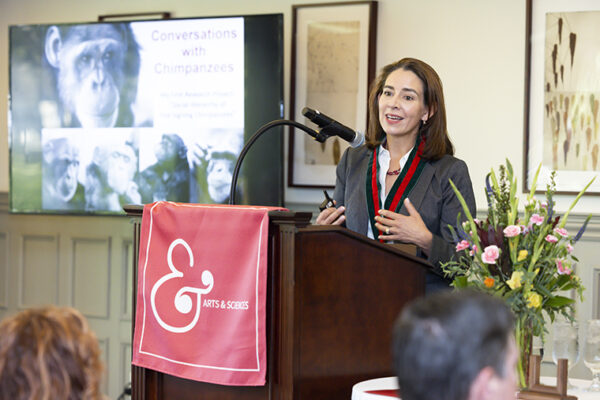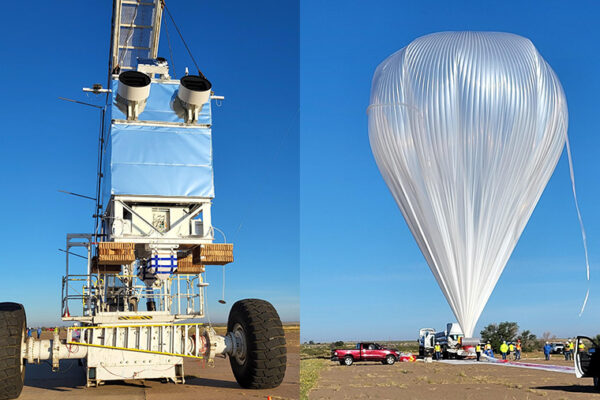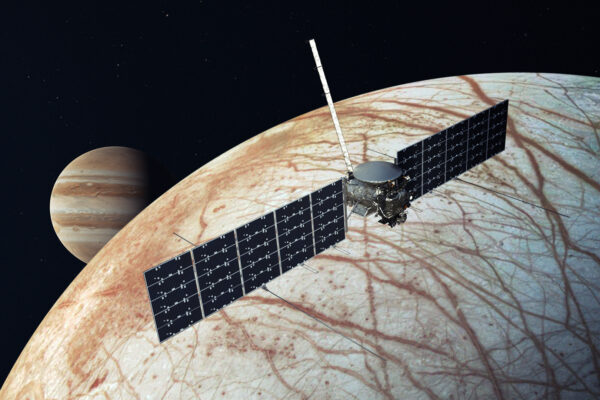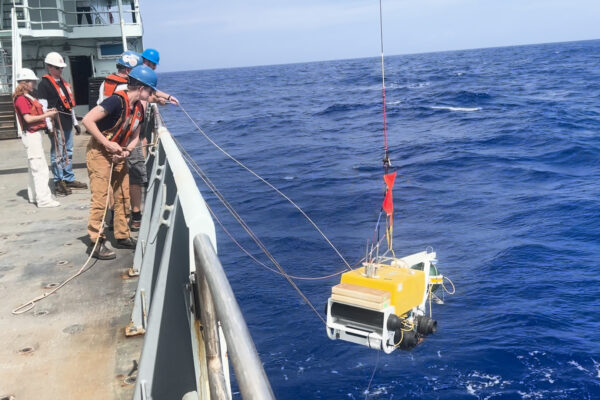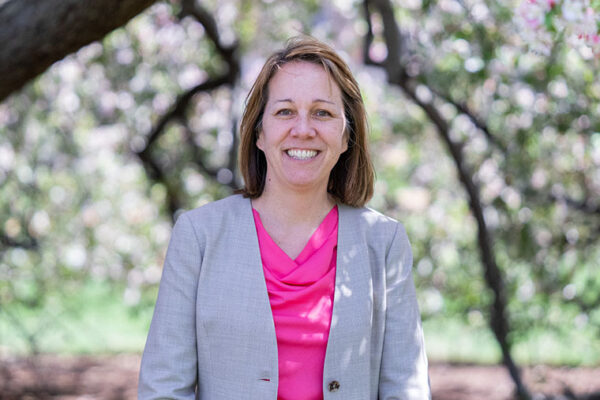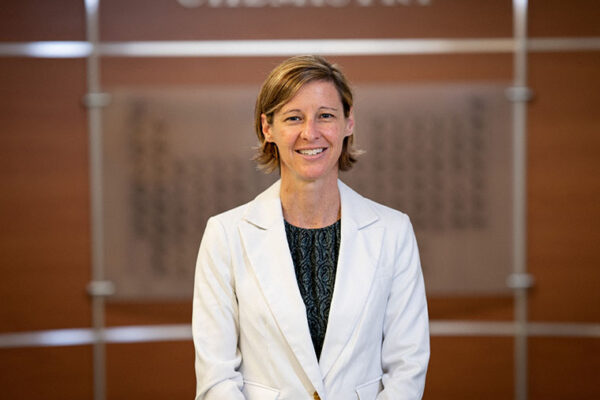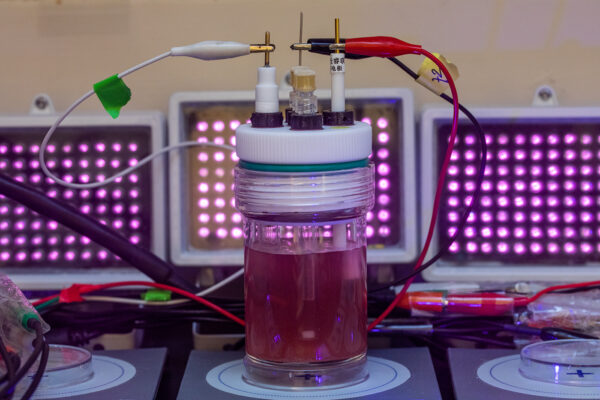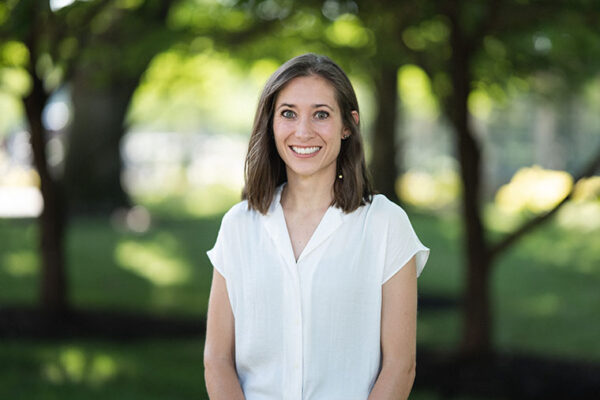Sanz installed as James W. and Jean L. Davis Professor
Crickette Sanz, a professor of anthropology at Washington University in St. Louis, was installed as the James W. and Jean L. Davis Professor in Arts and Sciences Sept. 4. Her installation address was titled “Learning From Great Apes About Rank.”
Wencewicz wins American Chemical Society Award
Timothy Wencewicz, an associate professor of chemistry in Arts & Sciences at WashU, is the winner of the American Chemical Society’s Saint Louis Award. Wencewicz’s research focuses on drug discovery to address the antibiotic resistance crisis.
Balloon mission tests quantum sensor technology
A WashU-led team successfully launched the DR-TES mission Sept. 24 from NASA’s balloon launch facility in New Mexico. Physicists in Arts & Sciences are using this mission to test quantum X-ray and gamma-ray detectors in near-space conditions.
NASA’s Europa Clipper prepares for launch
The Europa Clipper mission is the first to specifically target Jupiter’s ocean moon for detailed science investigation. In this Q&A, WashU’s William B. McKinnon, a science team member, describes what’s at stake when it launches next month.
Field Notes: South Pacific
WashU earth scientists in Arts & Sciences are mapping Earth’s interior and analyzing lava rocks from a volcanic hotspot near the islands of Samoa.
National Academies report highlights high magnetic field science
Sophia Hayes, in Arts & Sciences, co-authored a study on strategic directions guiding high magnetic field science with pursuits in chemistry, medical MRI, low-temperature physics, superconducting materials and fusion. Challenges to the helium supply figured prominently throughout.
Heemstra speaks about elevating scientific discovery at chemistry meeting
Jennifer M. Heemstra, the Charles Allen Thomas Professor of Chemistry and chair of chemistry in Arts & Sciences at WashU, delivered a keynote address at the American Chemistry Society fall meeting in Denver.
Turning bacteria into bioplastic factories
Biologists in Arts & Sciences have found new ways to encourage the plastic-producing power of purple microbes.
Reichhardt wins NIH MIRA award
Courtney Reichhardt, an assistant professor of chemistry in Arts & Sciences, has been awarded a prestigious Maximizing Investigators’ Research Award from the National Institutes of Health (NIH) to pursue several projects on fibrillar adhesins, the proteins bacteria use to stick to each other and surfaces.
Patty Jo Watson, professor emerita in anthropology, 92
Patty Jo Watson, a professor emerita in anthropology in Arts & Sciences at Washington University in St. Louis, died Thursday, Aug. 1, 2024, in Arlington, Mass. Watson was one of the world’s leading experts on cave archaeology and agricultural origins.
View More Stories
